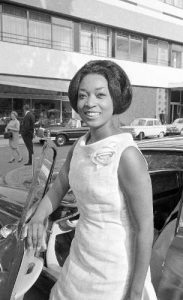Podcast: Play in new window | Download (Duration: 1:48:42 — 111.9MB) | Embed
Subscribe: Spotify | TuneIn | RSS | More
Aux armes, citoyens! We have received advance warning that an army of foreigners masking as French speakers are storming the artistic gates, so to speak, and attempting to usurp France’s national artistic identity. Strangely, many of the invaders are operatic tenors, though they are accompanied by a coterie of vivandières singing popular music, all in French, no matter what their native tongues. Last week’s celebration of French glamour is today compromised, sullied, and usurped by all manner of unwelcome albeit glamorous guests, led by the New Zealander Frances Alda and buttressed by the American Eleanor Steber, fresh from celebrating her birthday this past week. Some of these figures masquerade more convincingly as actual French persons, but make no mistake, whether they be deceptive Canadians (Léopold Simoneau, Raoul Jobin, Richard Verreau), interloping Belgians (André d’Arkor), unwelcome Italians (the shocking Franco Corelli, the mysterious Dalida, and the dreaded Mirella Freni), subsersive Spaniards (Miguel Villabella, Alfredo Kraus, Tony Poncet) bullying Brazilians (Elis Regina), sneaky Swedes (Nicolai Gedda), denizens of the dreaded United Kingdom (Stuart Burrows, Dusty Springfield, Petula Clark, Annie Lennox), Germans of nefarious intent (Marlene Dietrich, Daniel Behle), questionable Australians (Albert Lance, traveling incognito), suspicious Russians (Joseph Rogatchewsky), or worst of all, Americans intent on conquest (Barbara Hendricks, Eartha Kitt, Barbra Streisand, Muriel Smith, and even the spotlight-stealing Daniel Gundlach), these characters are all intent on destroying France’s language and music and must be thwarted at all costs, no matter how appealing their songs might appear to be. Finally, following the heroic actions of Georges Thill, France re-asserts her right to her own repertoire. But it seems that the damage has been done, for Natalie Dessay, Françoise Hardy, and even the formerly trustworthy Hugues Aufray, now seem only interested in singing American pop songs, albeit in French. All in all, an episode packed with intrigue, deception, and glorious singing!
Countermelody is a podcast devoted to the glory and the power of the human voice raised in song. Singer and vocal aficionado Daniel Gundlach explores great classical and opera singers of the past and present with the help of guests from the classical music field: singers, conductors, composers, coaches, agents, and voice teachers. Daniel’s lifetime in music as a professional countertenor, pianist, vocal coach, voice teacher, and journalist yields an exciting array of anecdotes, impressions, and “inside stories.” At Countermelody’s core is the interaction between singers of all stripes, their instruments, and the connection they make to the words they sing. Please visit the Countermelody website (www.countermelodypodcast.com) for additional content. And please head to our Patreon page at www.patreon.com/countermelody to pledge your monthly support at whatever level you can afford.
